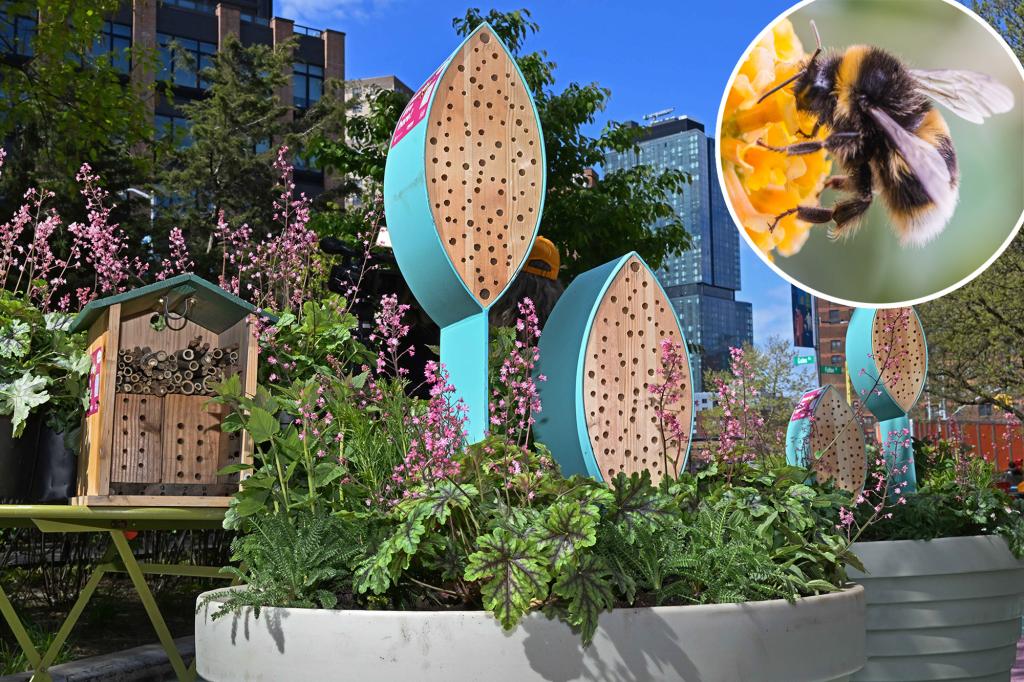A project in New York City to install birdhouse-style “bee hotels” in public plazas aims to provide nutrition and nesting spaces for at-risk native pollinators. The Department of Transportation is spearheading this effort to create habitats for bees and facilitate important scientific research. Commissioner Ydanis Rodriguez emphasized the importance of bees for the health of the planet and the need to protect at-risk bee populations, such as tickle bees, in urban environments.
The plazas will feature underground “bunkers” surrounded by plants and nutrient-rich soil to encourage female bees to build nests and lay eggs. However, bee expert Anthony “Tony Bees” Planakis expressed concerns about luring bees to dense urban environments, stating that bees in the city face challenges related to sustainability and lack of space for foraging. He emphasized the importance of letting nature take its course and suggested that bee hotels may be more successful in suburban areas like Staten Island rather than crowded boroughs like Manhattan and the Bronx.
The bee-friendly stations will be installed in various public plazas across the city, including locations like Cooper Square Plaza in Manhattan, 34th Avenue in Queens, and Water Street Plaza in Staten Island. The project has already been tested in places like Parkside Plaza in Brooklyn and Fordham Plaza in the Bronx. With up to 60% of the state’s native pollinators at risk due to declining populations, the goal of the project is to create safe spaces for bees to thrive and contribute to the pollination process.
The Department of Transportation collaborated with the Horticultural Society of New York and Rutgers University for this initiative. The Horticultural Society of New York is helping to transition plantings in public plazas and open streets to include native plants and pollinator plants. This partnership aims to support the well-being of bees and other pollinators by providing them with the resources they need to survive and thrive in an urban setting.
While the bee hotels project is a step towards creating more sustainable habitats for at-risk bee populations, concerns have been raised about the viability of these structures in densely populated urban areas. Experts like Anthony Planakis warn that the lack of adequate space for bees to forage and defend themselves against predators could pose challenges for their survival in the city. Moving forward, it will be important to monitor the impact of these bee hotels on native pollinators and make adjustments as needed to ensure their well-being.
Overall, the installation of bee-friendly spaces in New York City public plazas represents a significant effort to protect and support native pollinators in urban environments. By providing nutrition and nesting opportunities for bees, the project aims to create safe habitats for at-risk bee populations to thrive and contribute to the ecosystem. Collaboration between government agencies, non-profit organizations, and experts in the field will be essential to the success of this initiative and the long-term sustainability of bee populations in the city.


